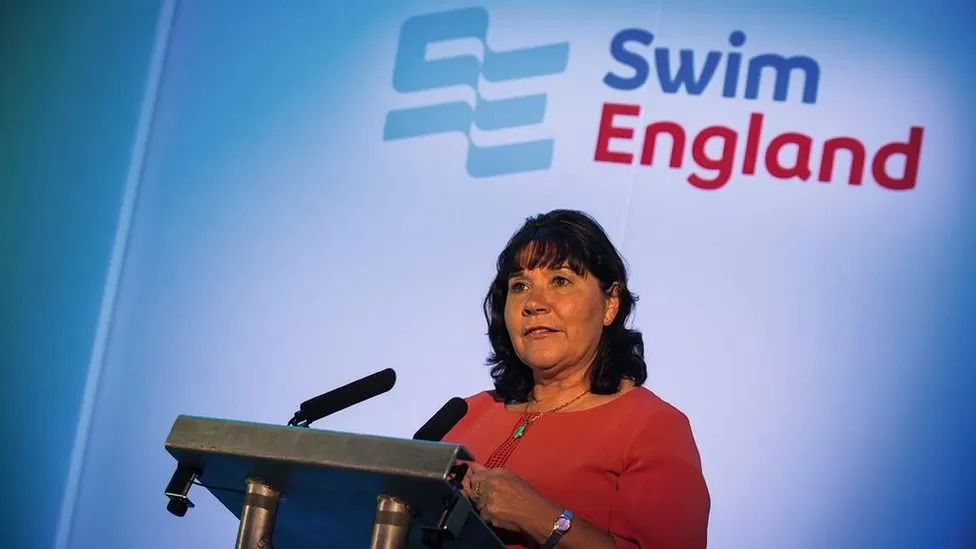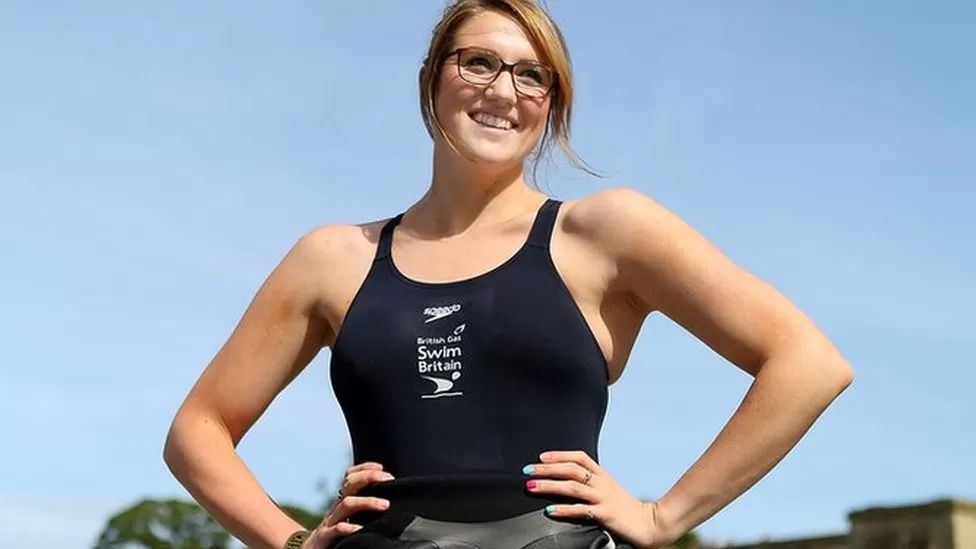Swim England failed to investigate allegations children were being fat-shamed despite evidence they were at risk of harm, a report has found.
The governing body needs to overhaul its processes to keep swimmers safe, the review commissioned by Sport England said.
A "confusing and inconsistent" approach to safeguarding and decision-making was criticised by barrister Louis Weston.
Swim England said it accepted the recommendations and need for change.
The report found the organisation had not prioritised cases of bullying and emotional abuse "even when those acts are said to have been carried out by coaches registered with Swim England".
Mr Weston's review was commissioned to scrutinise Swim England's decision-making, following investigations into three swimming clubs and complaints about how the governing body had acted.
Weight-shaming complaints were made by members of City of Oxford Swimming Club. Despite evidence young children were at risk of harm, Swim England said there were no safeguarding issues, the report found.
Mr Weston also questioned how Swim England reached its decisions and that there appeared to be no way to challenge them.
Another complaint analysed was the controversial closure of elite club Ellesmere College Titans, in Shropshire, which came after swimmers there described a toxic environment of bullying, fat-shaming and favouritism.
Swim England's chief executive Jane Nickerson sanctioned the closure of Titans due to "very substantial issues", the report said, but it was "not clear how that sanction was reached" and club members were unable to challenge it.
 Jane Nickerson, who hails from Coventry, is to retire from Swim England later this year
Jane Nickerson, who hails from Coventry, is to retire from Swim England later this year
It led to a substantial number of complaints from parents of existing swimmers who said the closure was unjustified, they had not been consulted, they were facing four-hour round trips to other clubs and their children's education had been disrupted.
The third complaint centred around the lack of investigation of a child's treatment at an undisclosed club.
None of the original investigations were reheard, nor will they be reopened.
Mr Weston's report concluded Swim England had a "confusing and inconsistent approach to safeguarding and concerns of child abuse in sport".
It also said Ms Nickerson had been granted "extraordinary and unjustified powers" along with the organisation's independent child protection officer, which led to "unfairness" and prevented "proper challenge to decisions".
In reference to the governing body's approach to emotional abuse, Mr Weston said: "A child that is bullied or shamed to their appearance may possibly not suffer in the eyes of some 'significant' harm.
"That does not mean that Swim England should stand by and allow that bullying or shaming to continue, until significant harm occurs."
Ms Nickerson recently said she was "truly sorry" swimmers had suffered harm after several said they had developed eating disorders and endured bullying at the hands of abusive coaches, and vowed to reform the sport.
Olympian Cassie Patten said she had left swimming feeling "broken" due to her coaches' obsession with her weight and had been contacted by dozens of swimmers after speaking out.
 Olympic medallist Cassie Patten said she had suffered "disordered eating" for years due to negative comments
Olympic medallist Cassie Patten said she had suffered "disordered eating" for years due to negative comments
The Sport England-commissioned review:
* Said Swim England should have a "single destination" for reporting safeguarding concerns to build up an "intelligence picture"
* Highlighted findings in the Whyte review into abuse in gymnastics that concluded "placing too much responsibility on the work of volunteers with limited training is an unacceptable risk"
* Recommended safeguarding issues be heard in front of a panel and removing Swim England's CEO "from any powers of disciplinary sanction for safeguarding"
Swim England said it accepted the report's findings and nine recommendations and had already begun implementing them.
It said its recently published safeguarding and welfare plan the Heart of Aquatics "sets out to continually improve the culture and practices within our sports and details our ongoing commitment to the entire aquatics community".
It said a forthcoming independent review would listen to the experiences of those in its sports would help to "ensure there is a positive culture across our sports and that the highest standards of welfare and safeguarding are in place."















